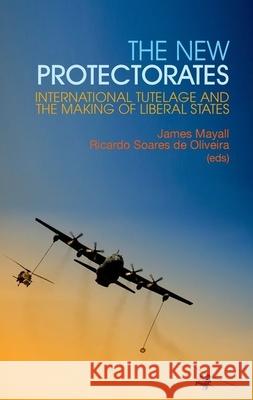New Protectorates: International Tutelage and the Making of Liberal States » książka
New Protectorates: International Tutelage and the Making of Liberal States
ISBN-13: 9780199327508 / Angielski / Twarda / 2011 / 320 str.
German troops fighting the Taliban in the Hindu Kush; EU judges sitting in courts in the Balkans; UN viceroys governing parts of Oceania; American occupation of the Middle East. Amid the myriad political experiences of the post-Cold War era, the historians of the future are likely to pay particular attention to attempts by outsiders to administer a host of post-conflict societies, to perform physical and social reconstruction, to establish functioning institutions, to open economies and, ultimately, to transform the "maladjusted" political cultures of Africa, Asia and the Middle East. Few developments in the two decades after 1989 were as revealing of the character of the international system, of the gaps between liberal discourse and practice, and of the fleeting nature of the Western hegemonic moment.
What made the new protectorates possible? What were they like as an actual political experience? How contradictory was their reception? Why was the process of governing others for their own good so flawed and why were the outcomes so disappointing? These are among the questions addressed by some of the leading authorities in the field, including Stefan Halper, Christopher Clapham, Mats Berdal and Richard Caplan.











